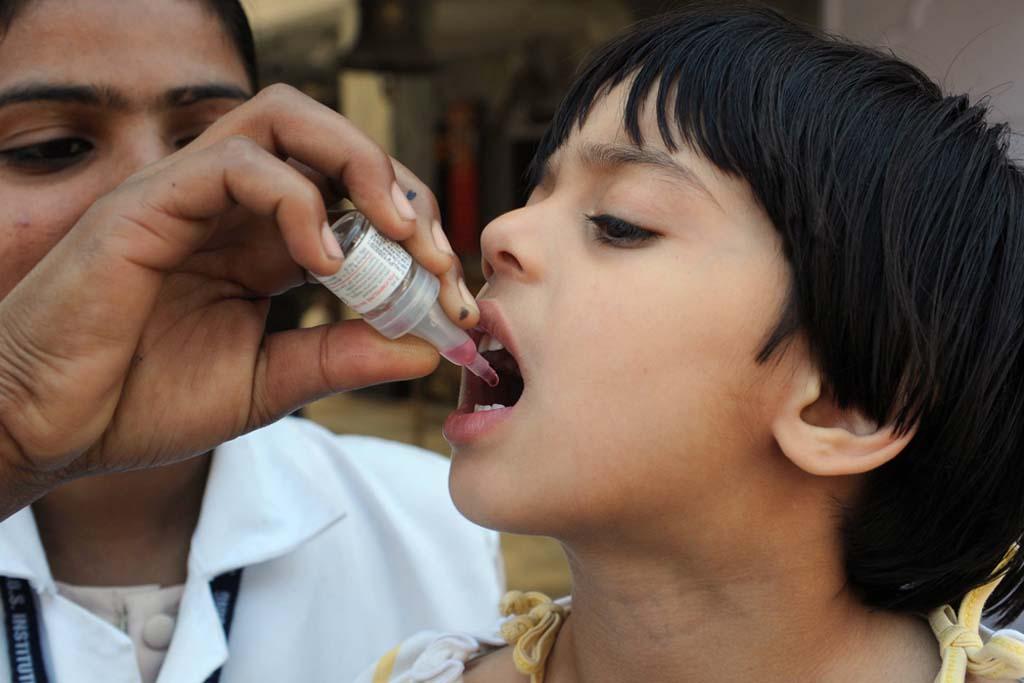Immunizations for all: Q&A with GAVI Alliance’s Dagfinn Høybråten
A girl receives polio vaccination drops from a medical volunteer during an immunisation drive in Amritsar, India.
Dagfinn Høybråten is the Board chair of GAVI alliance, an organization that aims to save lives by increasing immunization in developing countries. He also serves as a vice president of Norwegian Parliament and is Norway’s former health minister. While at the Child Survival Call to Action Conference in Washington, DC earlier this month, he spoke with GlobalPost about why he believes vaccines are essential to Secretary Clinton’s goal of ending preventable child deaths.
At the Child Survival Call to Action conference this month, Secretary Clinton announced a goal to end preventable child deaths by 2035. Do you think this is this possible?
I do think it’s possible. We have been able, over the last decade or so, to really boost vaccination coverage. In the course of these 12 years we [GAVI Alliance] have been in existence, we have been able to prevent more than five and a half million unnecessary deaths. So with a concerted global action where vaccines must play a very important part, I think this is an achievable goal. It has to do with delivering the interventions that are available, and will be available, to all children. At the same time it’s also very smart to do it, because we’re talking about the future backbone of nations and their economies.
What vaccines are most important in order to reach that goal?
Well, I think we need to work hard to further increase the coverage of the routine immunization with the pentavalent vaccine at the core of it. We continue now to roll out in new countries this year and next year the new vaccines against the rotavirus and pneumococcal. And those are the two major killers of children where there now are vaccines available. And GAVI has opened a new window for financing the HPV vaccine against cervical cancer, which is responsible for killing 270,000 women annually. Almost 80 percent of the burden of cervical cancer is in the poorest countries, but so far the vaccines almost entirely have gone to the developed part of the world. Further down the line, we are eager to see a new vaccine against malaria, and we also will welcome a vaccine against HIV/AIDS, which is also in the process of being developed. So these are the vaccines that would be mainly targeted to low and mid income countries and therefore in the mainstream of GAVI’s mission.
What’s GAVI’s goal in the next few years?
We are now running by the strategic plan that we presented to the world last year, and it goes up to 2015. According to the plan we will immunize 250 million children and save four million lives.
As former health minister of Norway and a Vice President of Norwegian Parliament, I’m sure there are many health issues that are important. Why do you believe in GAVI specifically?
I see it’s a great privilege to serve a cause that so clearly is focused on saving the lives of children. And the tools that we can offer so efficiently can achieve the highest goal of any health intervention — that is, to save lives. So to me, GAVI offers an opportunity to serve a cause that is more meaningful than anything I have done in my public service of over 30 years.
